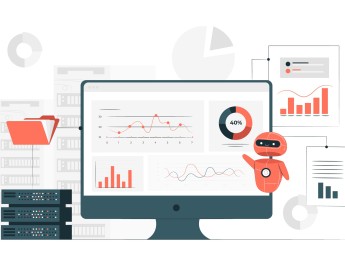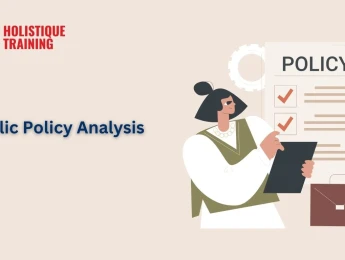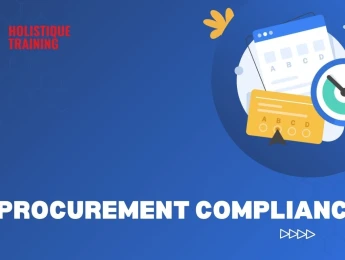Analytics play a pivotal role in driving business success. This course will teach you to utilise qualitative and quantitative data to make informed decisions and maximise operational value. You will learn to collect data from diverse sources, ensuring a comprehensive understanding before implementing changes. Reliable data storage and retrieval systems will be emphasised to maintain security and integrity.
Leveraging data analytics can enhance risk mitigation, validate concepts, and gain insights to make strategic decisions. This approach will empower you to improve management styles, boost employee productivity, and target the right customer segments, leading to increased profits and a happier workforce. Furthermore, you will learn to present data effectively to attract stakeholders and secure future investments, ensuring your business stays ahead of the competition.
Upon completion of this course, participants will be able to:
- Understand the most accurate forms of data for your type of business.
- Develop effective data-gathering solutions to aid continuous improvement.
- Create data models and charts in the most effective way to display your data.
- Benchmark your data against competitors and your own business from previous years.
- Collect varied data samples to support your project plans.
- Introduce basic and more complex methods of data presentation to secure a return on investment from stakeholders.
- Utilise various analytical models to aid understanding.
- Cross-section data and relate it to practical experience.
- Develop forecasting models for the future based on past trends.
This course is intended for anyone who is responsible for gathering data to provide accurate predictions and forecasting or project planners and operational reports who feed off data to make informed decisions. It would be most beneficial for:
- Data Analysts
- Business Owners
- Project Managers
- Operations Managers
- Marketing Directors
- Sales Directors
- Finance Personnel
- HR Personnel
This course uses various problem-solving techniques to help participants collect data supporting their business model. Group discussions and practical spreadsheet activities will allow teams to delve into the world of data to uncover the most appropriate actions for a business in the future.
Trainer-led seminars followed by presentations will give the participants the tools to display their findings, explain the data and gain buy-in from their audience to secure ‘funding’ for future projects.
Day 5 of each course is reserved for a Q&A session, which may occur off-site. For 10-day courses, this also applies to day 10
Section 1: The Basics of Data & Sampling
- How to use data to grow your business.
- Speaking with stakeholders and partners.
- Recognising which data types will best reflect your business.
- A dictionary of analytical terms.
- Basic statistical models.
Section 2: Finding Reputable Data Sources
- Finding your data sources.
- Qualitative vs. quantitative data. What the figures can tell you.
- Discussing sample sizes.
- Recognising incorrect data sets.
Section 3: Baseline Statistics & What They Mean
- Creating a multi-dimensional vision.
- Trending analysis.
- Box and Whisker charts.
- Periodic vs. non-periodic data.
- Inverse transformation.
Section 4: Benchmarking & Data Comparison
- Creating a dynamic range and amplitude resolution.
- Comparative data and what this tells you about the future.
- Pivot tables and V-lookups.
- Customer segmentation to aid marketing.
- Competitor evaluation.
- Comparing the past to the present to create the future.
Section 5: Frequency of Data Gathering & Graph Creation
- How often should you check for changes in trends?
- Looking at correlations to draw conclusions.
- Problems with data types.
- Percentile analysis.
- Histograms.
- Pareto Analysis.
- Cumulative percentage analysis.
- The law of diminishing return.
Section 6: Data Presentation
- Exponential curves and polynominal curves.
- Finding a display platform.
- PowerBi tools.
- Analysis of variance (ANOVA).
- Macros and spreadsheets.
- Highlighting risks and overcoming negativity.
- Applications to support your data.
- Hypothesising and moving forward.
- Monitoring and retesting data to discover the effects of change and development.
Upon successful completion of this training course, delegates will be awarded a Holistique Training Certificate of Completion. For those who attend and complete the online training course, a Holistique Training e-Certificate will be provided.
Holistique Training Certificates are accredited by the British Assessment Council (BAC) and The CPD Certification Service (CPD), and are certified under ISO 9001, ISO 21001, and ISO 29993 standards.
CPD credits for this course are granted by our Certificates and will be reflected on the Holistique Training Certificate of Completion. In accordance with the standards of The CPD Certification Service, one CPD credit is awarded per hour of course attendance. A maximum of 50 CPD credits can be claimed for any single course we currently offer.
- Course Code PI1-128
- Course Format Classroom, Online,
- Duration 5 days














